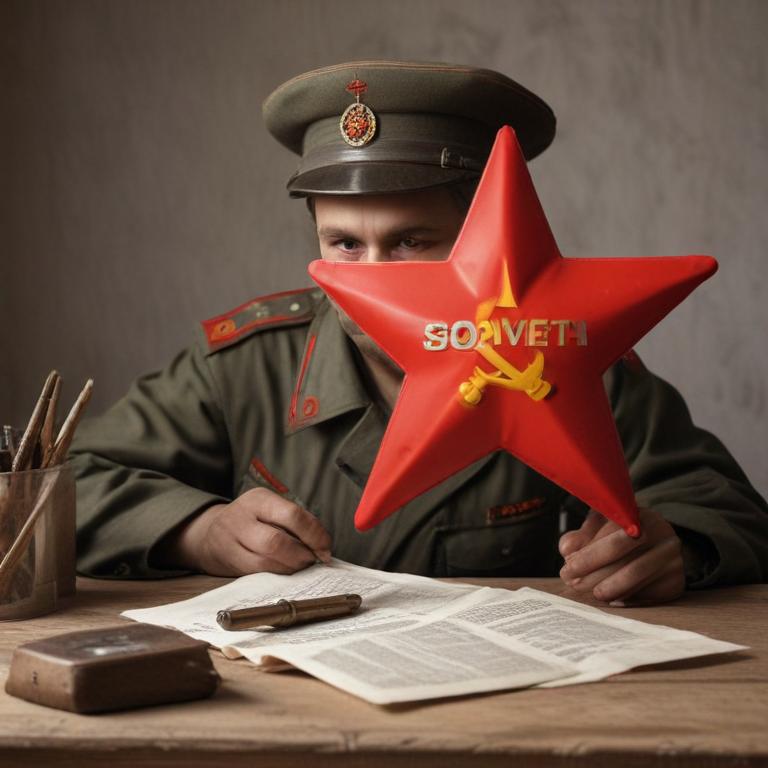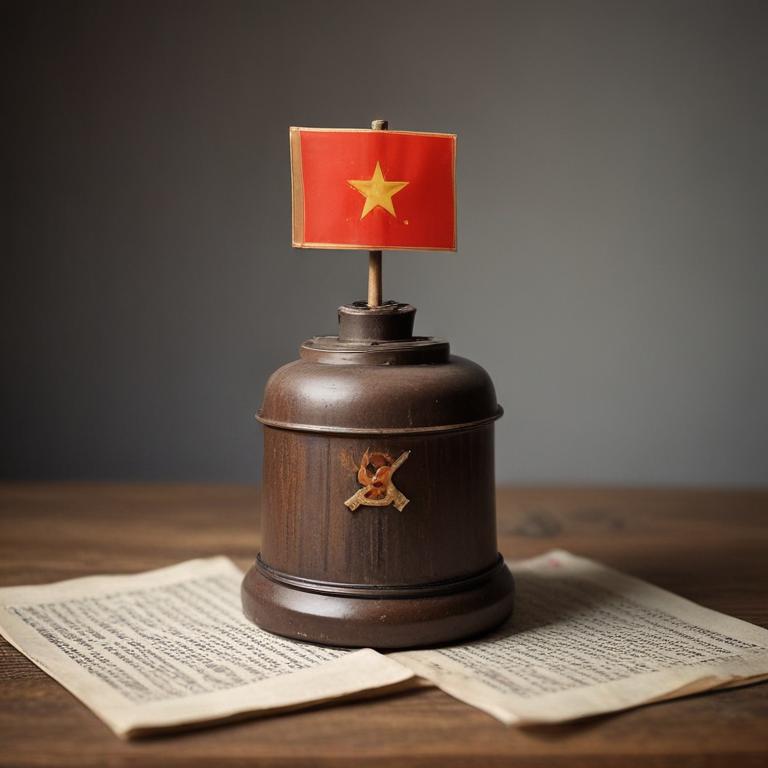发音 (Pronunciation):
IPA: /ˈsoʊ.vi.ət/
中文近似: 索维耶特
中文意思与词性 (Meanings & Part of Speech):
- (名词)苏维埃(原意为“委员会”,指俄国革命后的工人、士兵等代表组织,后来特指前苏联的地方或中央政府机构) (n.)
- (形容词)苏联的,苏维埃的(与苏联有关的) (adj.)
例句 (Examples):
1. The Soviet controlled much of Eastern Europe after World War II.
(二战后,苏维埃控制了东欧的大部分地区。)
2. She studied Soviet history at university.
(她在大学里学习苏联历史。)
用法提示 (Usage Tip):
“Soviet”作名词时多指苏维埃委员会或成员,作形容词时常见于“Soviet Union”(苏联)。需注意“苏维埃”与“苏联”含义区别:前者为组织形式或委员会,后者为国家名称(Union of Soviet Socialist Republics)。
更多关于 "soviet" (More about "soviet")
单词来源 (Etymology)
“soviet”源自俄语“совет”(sovet),意为“委员会”或“议会”,最早指俄国革命中的工农兵代表会议,后逐渐演变为国家名称组成部分。
词根词缀解析 (Root & Affix Analysis)
“Soviet”为外来词,整体借自俄语,没有英语常见的词根词缀结构,属于音译词。
“soviet”的字母与词根个性化解读
字母象形/引申义 (个性化参考)
- 字母 's' 的象形或引申含义可能包括: 水波纹/走路痕迹 (S象形); 吐气轻细咝 -> 说话 (拟声); 音变: S=C=Z=TH=X。
- 字母 'o' 的象形或引申含义可能包括: 眼睛/嘴 (圆形) -> 张开, 转动; 圆柱; 音变: A=E=I=O=U=W=Y。
- 字母 'v' 的象形或引申含义可能包括: 山谷 -> 风口 -> 路 -> 往返/走 (via, vent); 牛角 -> 牛 -> 强壮征服 -> 能力价值 (val, vinc); 转和活 (vol同源); 手 (V=F); 音变: V=U=W; V=B=P=M=F。
- 字母 'i' 的象形或引申含义可能包括: 我 (an, any, one -> 人); 水滴 -> 水 (ice); 尖, 一点, 小 (inch); 元音互换: A=E=I=O=U=W=Y。
- 字母 'e' 的象形或引申含义可能包括: 眼睛 (窗户符号引申); 向外 (ex-变体); 元音互换: A=E=I=O=U=W=Y。
- 字母 't' 的象形或引申含义可能包括: 顶端 -> 记号/标志; 手杖 -> 抓 -> 手 -> 伸展 -> 指示代词; 支撑 -> 站立; 三叉 -> Tr转换/转; 分叉; 音变: T=D=S=TH。
学习提示:以上针对单词 soviet 的字母和词根解读,主要基于提供的特定象形及词根资料。这些提示旨在启发联想,而非绝对定论。更通用的记忆规则和原则请参考首页。英语词源复杂多变,实际应用中请结合更全面的词源词典和语言学知识进行深入学习。
常用词组 (Common Phrases)
- Soviet Union: 苏联
- Soviet era: 苏联时期
其他语言 (Other Languages)
- 德语: Sowjet
- 法语: soviétique
字母整体创意联想
单词“soviet”形状像一个展示着旗帜(t像旗杆),o像太阳,v像一只高举的手,拼合成革命时期群众集会和旗帜的画面。
逐字母创意解读
中文谐音助记
“soviet 苏维埃”可以记成“苏维埃也是 soviet,音近‘索维耶特’”。
相关电影/名言
"The Soviet Union will not stand idly by."
(苏联不会袖手旁观。)
- 《13天 (Thirteen Days)》(2000)
趣味知识/故事
“soviet”这个词最早并不是国家的名字,而是指来自不同工厂、单位和部队的代表组成的委员会。1917年俄国革命后,这些“苏维埃”成为政权基础,后来“苏维埃”也被用作苏联(Union of Soviet Socialist Republics)的简称,成为20世纪世界历史的重要符号之一。
拓展信息
soviet 作为专有名词首字母常大写(Soviet),作为普通名词指“委员会”时,小写(soviet)。
在现代英语中,soviet 主要用作历史和政治语境,如讲述苏联历史或描述相关时期的事件。
注意不要误用 soviet 指单纯的“苏联人”,正确表达苏联人的词是 Soviet citizen 或 Soviet people。
网络参考 (More about "soviet" from the Web)
Soviet Union - Wikipedia
The Union of Soviet Socialist Republics [t] (USSR), [u] commonly known as the Soviet Union, [v] was a transcontinental country that spanned much of Eurasia from 1922 until it dissolved in 1991. During its existence, it was the largest country by area, extending across eleven time zones and sharing borders with twelve countries, and the third-most populous country.
Soviet (council) - Wikipedia
A soviet is a socialist workers' council that emerged in the Russian Empire and played a key role in the Russian Revolution. Learn about the origins, development, and significance of soviets in Russian and world history.
Soviet Union | History, Leaders, Flag, Map, & Anthem | Britannica
Soviet Union (Union of Soviet Socialist Republics; U.S.S.R.), former northern Eurasian empire (1917/22-1991) stretching from the Baltic and Black seas to the Pacific Ocean and, in its final years, consisting of 15 Soviet Socialist Republics. The capital was Moscow, then and now the capital of Russia.
更多图片 (soviet More Images)

